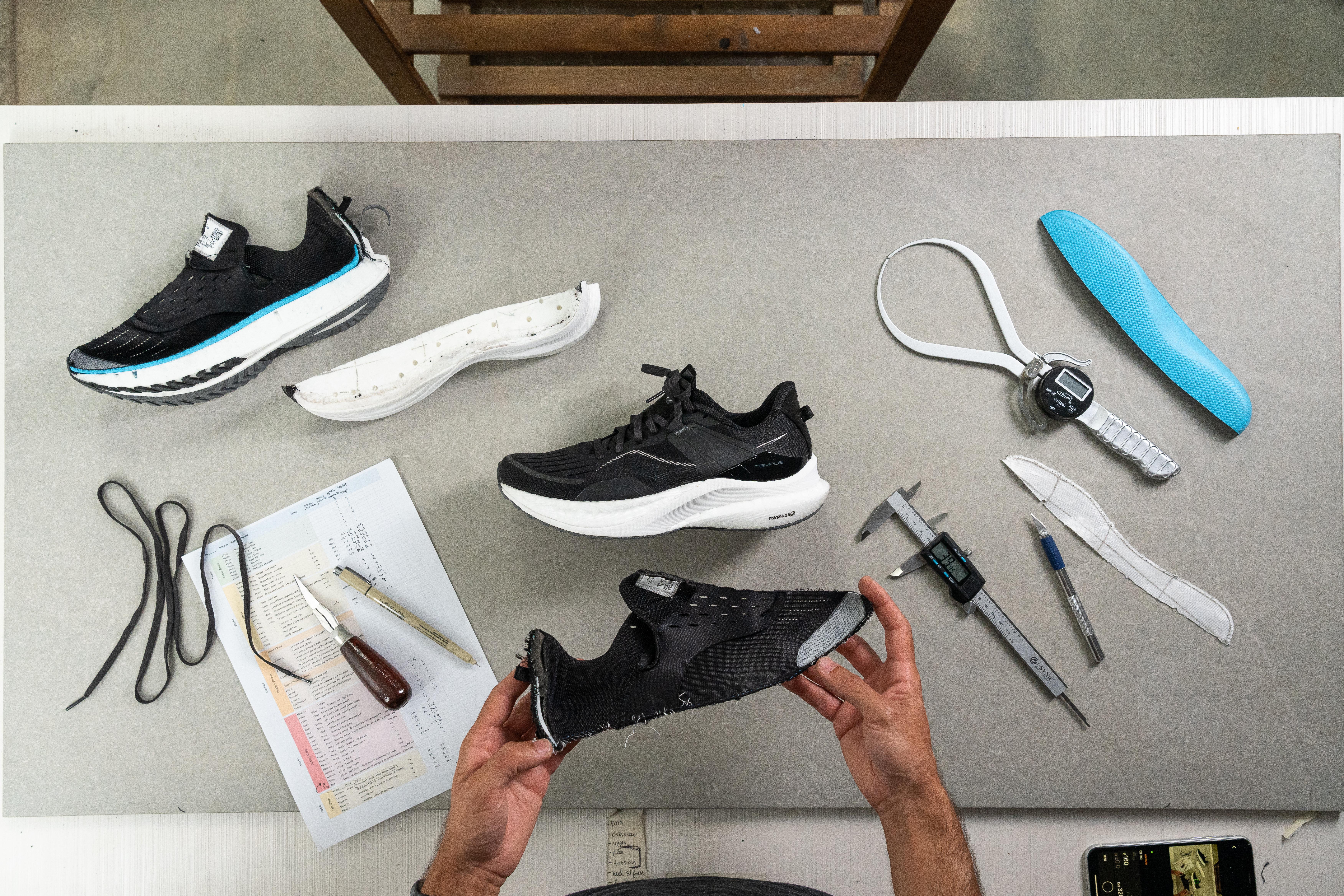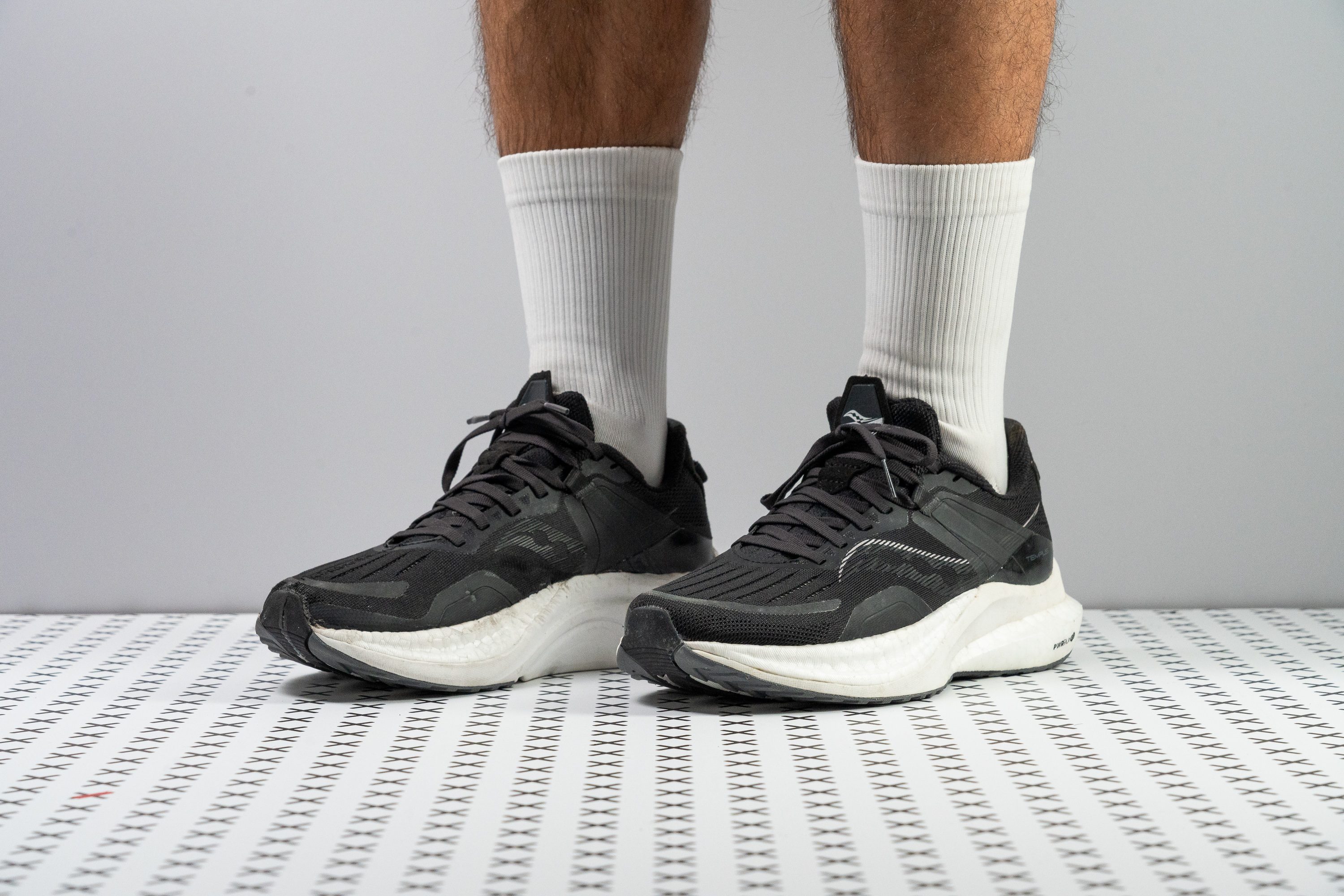Our verdict
- Our top pick in best running shoes for flat feet
- Our top pick in best stability running shoes
Pros
- Stable but not aggressive
- Responsive ride
- Smooth transitions
- Outsole is super solid
- Bites on wet roads
- Snug and secure fit
- Breathable on warm days
- Roomy toe box
- Not heavy
Cons
- Causes heel rubs
- Expensive
Audience verdict
- Top 7% in road running shoes
- Top 6% in Saucony running shoes
- Top 9% most popular running shoes
Comparison
The most similar running shoes compared
+ + Add a shoe | |||||
|---|---|---|---|---|---|
| Audience score | 91 Superb! | 88 Great! | 91 Superb! | 85 Good! | |
| Price | $160 | $140 | $150 | $160 | |
| Pace | Daily runningSpeed training | Daily running | Speed training | Daily running | |
| Arch support | Stability | Stability | Stability | Stability | |
| Weight lab Weight brand | 9.4 oz / 266g 8.9 oz / 252g | 10.1 oz / 286g 10.4 oz / 294g | 8 oz / 228g 8 oz / 228g | 9.8 oz / 278g 9.9 oz / 281g | |
| Lightweight | ✗ | ✗ | ✓ | ✗ | |
| Drop lab Drop brand | 8.5 mm 8.0 mm | 12.6 mm 12.0 mm | 9.9 mm 8.0 mm | 8.5 mm 8.0 mm | |
| Strike pattern | HeelMid/forefoot | Heel | HeelMid/forefoot | HeelMid/forefoot | |
| Midsole softness | Soft | Soft | Soft | Balanced | |
| Difference in midsole softness in cold | Small | Big | Big | Normal | |
| Toebox durability | - | Bad | Decent | - | |
| Heel padding durability | - | Good | Good | - | |
| Outsole durability | - | Good | Good | - | |
| Breathability | Breathable | Breathable | Breathable | Breathable | |
| Toebox width at the widest part | Medium | Medium | Medium | Medium | |
| Toebox width at the big toe | - | Medium | Medium | - | |
| Stiffness | Moderate | Flexible | Flexible | Moderate | |
| Difference in stiffness in cold | Small | Normal | Normal | Big | |
| Torsional rigidity | Moderate | Stiff | Moderate | Moderate | |
| Heel counter stiffness | Stiff | Stiff | Moderate | Moderate | |
| Rocker | ✓ | ✗ | ✗ | ✓ | |
| Heel lab Heel brand | 33.9 mm 36.5 mm | 34.1 mm 36.0 mm | 28.6 mm 28.0 mm | 31.8 mm 22.0 mm | |
| Forefoot lab Forefoot brand | 25.4 mm 28.5 mm | 21.5 mm 24.0 mm | 18.7 mm 22.0 mm | 23.3 mm 14.0 mm | |
| Widths available | NormalWide | NarrowNormalWideX-Wide | Normal | Normal | |
| Orthotic friendly | ✓ | ✓ | ✓ | ✓ | |
| Season | SummerAll seasons | SummerAll seasons | SummerAll seasons | SummerAll seasons | |
| Removable insole | ✓ | ✓ | ✓ | ✓ | |
| Ranking | #16 Top 7% | #99 Top 39% | #22 Top 9% | #189 Bottom 27% | |
| Popularity | #21 Top 9% | #8 Top 4% | #136 Bottom 47% | #237 Bottom 8% |
Who should buy the Saucony Tempus
The Tempus may be a stability shoe, but it's unlike the stability running shoes of yesteryears.
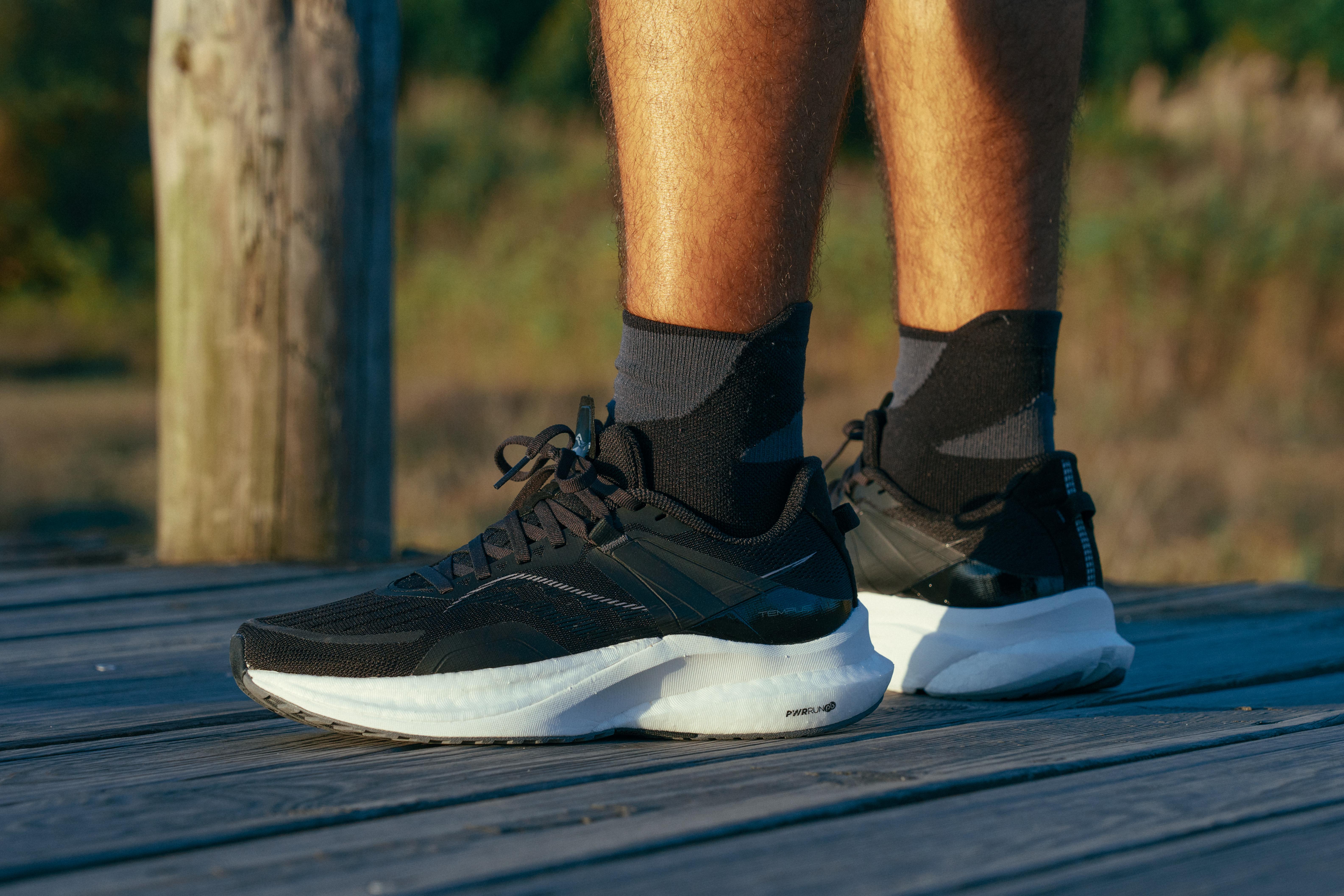
Meaning to say, it's also the perfect choice for those who want a:
- supportive shoe that can also accommodate neutral runners
- versatile shoe for both daily runs and tempo training sessions
- long-distance shoe that can handle marathon paces
Who should NOT buy it
If you're looking for a daily trainer that's oozing with goodness for recovery paces and is priced less than the Saucony Tempus, we suggest taking the Saucony Endorphin Shift 3. Don't want any of that heel rub? We propose the Saucony Ride 16.
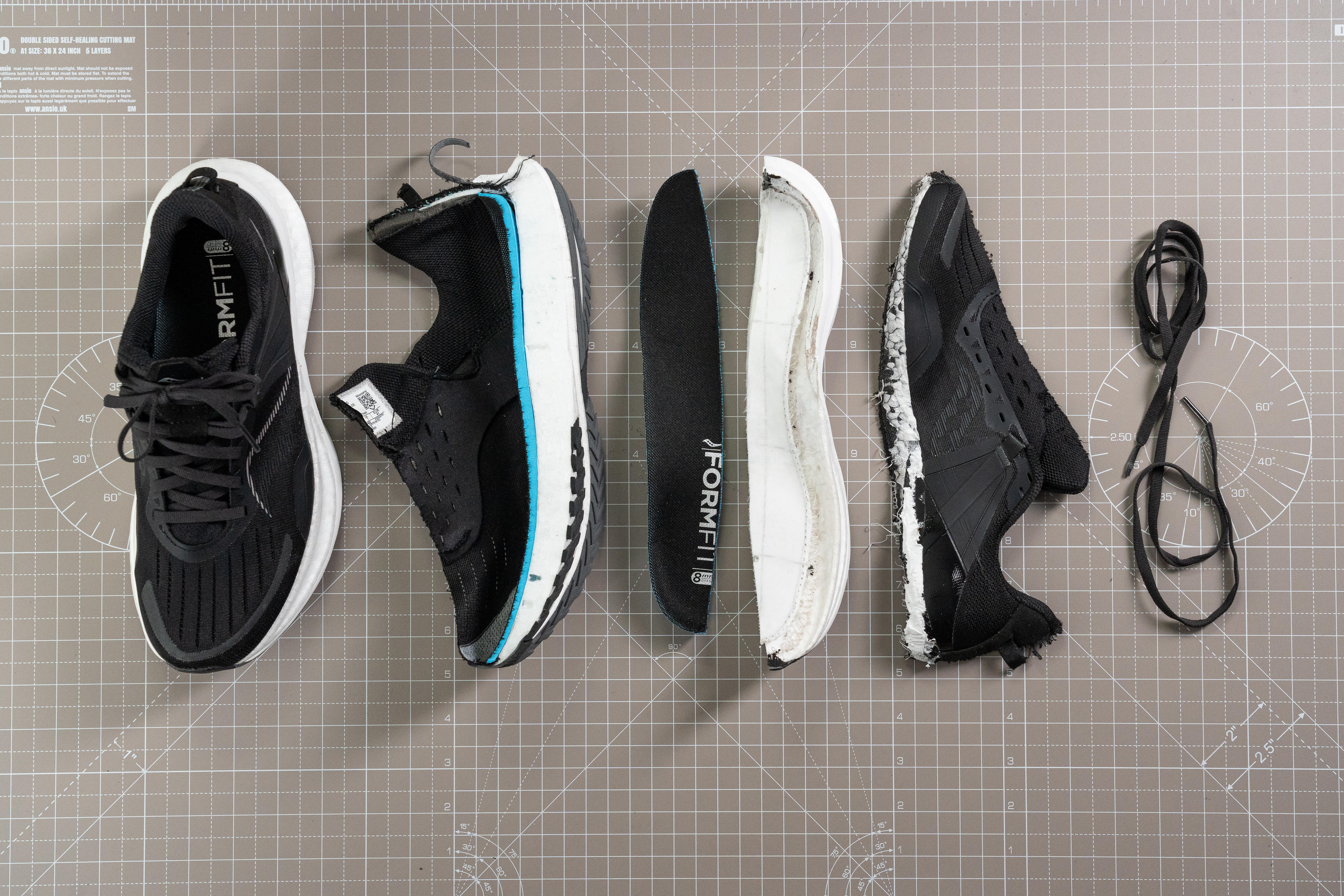
The Saucony Tempus redefines stability
Saucony is finally coming up with a new approach to arch support and stability. It's not the typical stiff support running shoe. We never felt like the shoe was forcing us to run in a particular way.
To explain this further, it doesn't have the traditional harsh posting of the older stability shoes. The midsole is a smidge dense and the forefoot base is wide, making the overall ride very surefooted.
Measuring the forefoot part of the midsole at its widest (117.4 mm), we found it to be more than 4 mm wider than average!
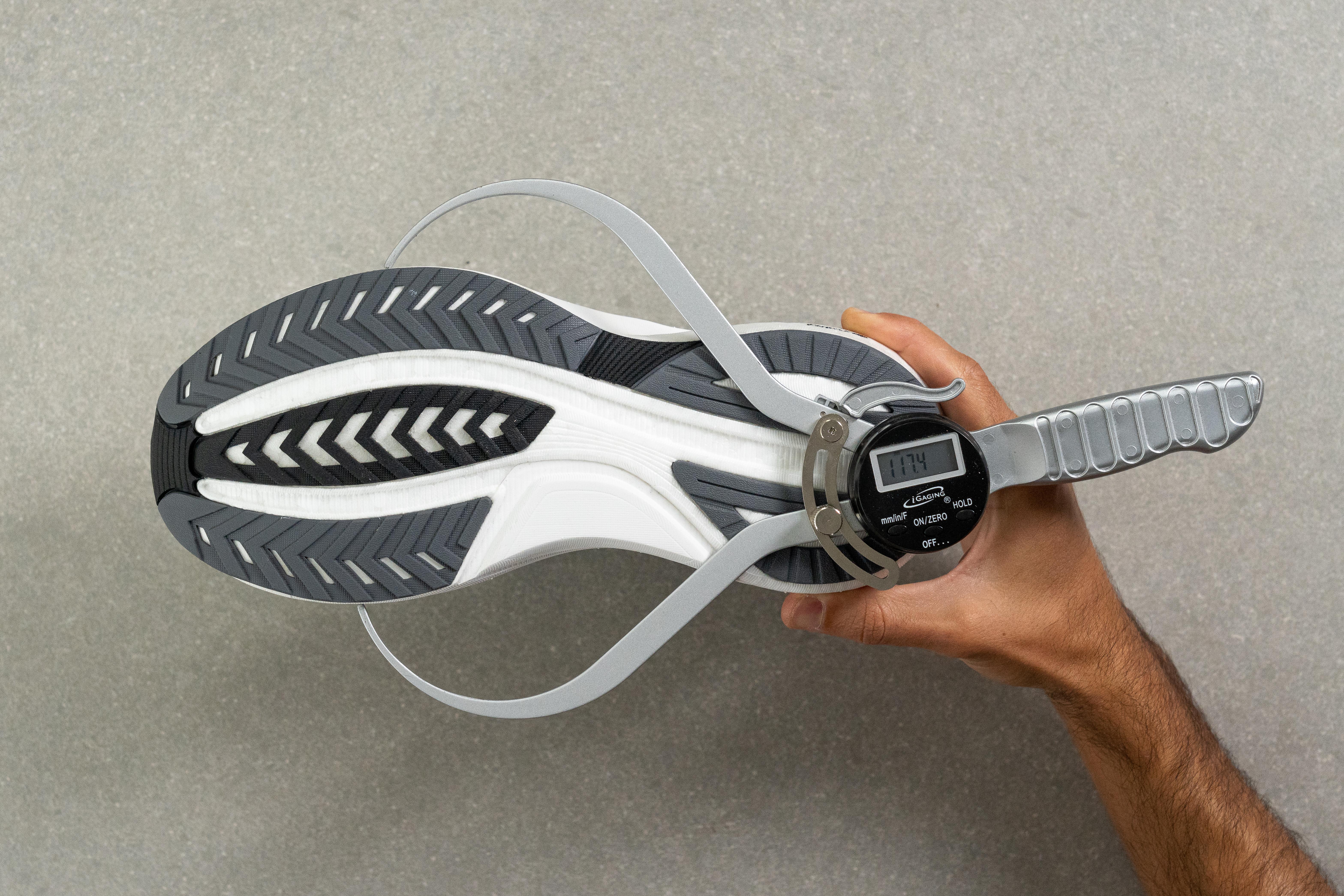
The same goes for the shoe's heel. At 94.5 mm, it is a good 4.5 mm wider than road running shoes on average!
Says no to sweaty feet
The shoe's upper is incredibly light and breathable. We can confirm that there will be no heat issues in this shoe even when running at 80-90 degrees.
See how easily the smoke passes through the mesh upper in our breathability test below.
Experience an energetic ride
Apart from its non-invasive stability, the shoe's springy cushion is also what makes the Saucony Tempus a game-changer. It balances stability with bounce perfectly!
On easy days, it comes to life, making the ride fun and enjoyable. And when it's time to put in some speed, it can certainly pick up the pace. Think of the Saucony Endorphin Speed 2 but with a touch of stability. That's how it performs.
Saucony proved that a stability shoe doesn't have to be dull!
Easy, seamless strides
The shoe has a rocker geometry that also contributes to its fast and easy heel-to-toe transitions. But the best thing about it feels very balanced and not aggressive.
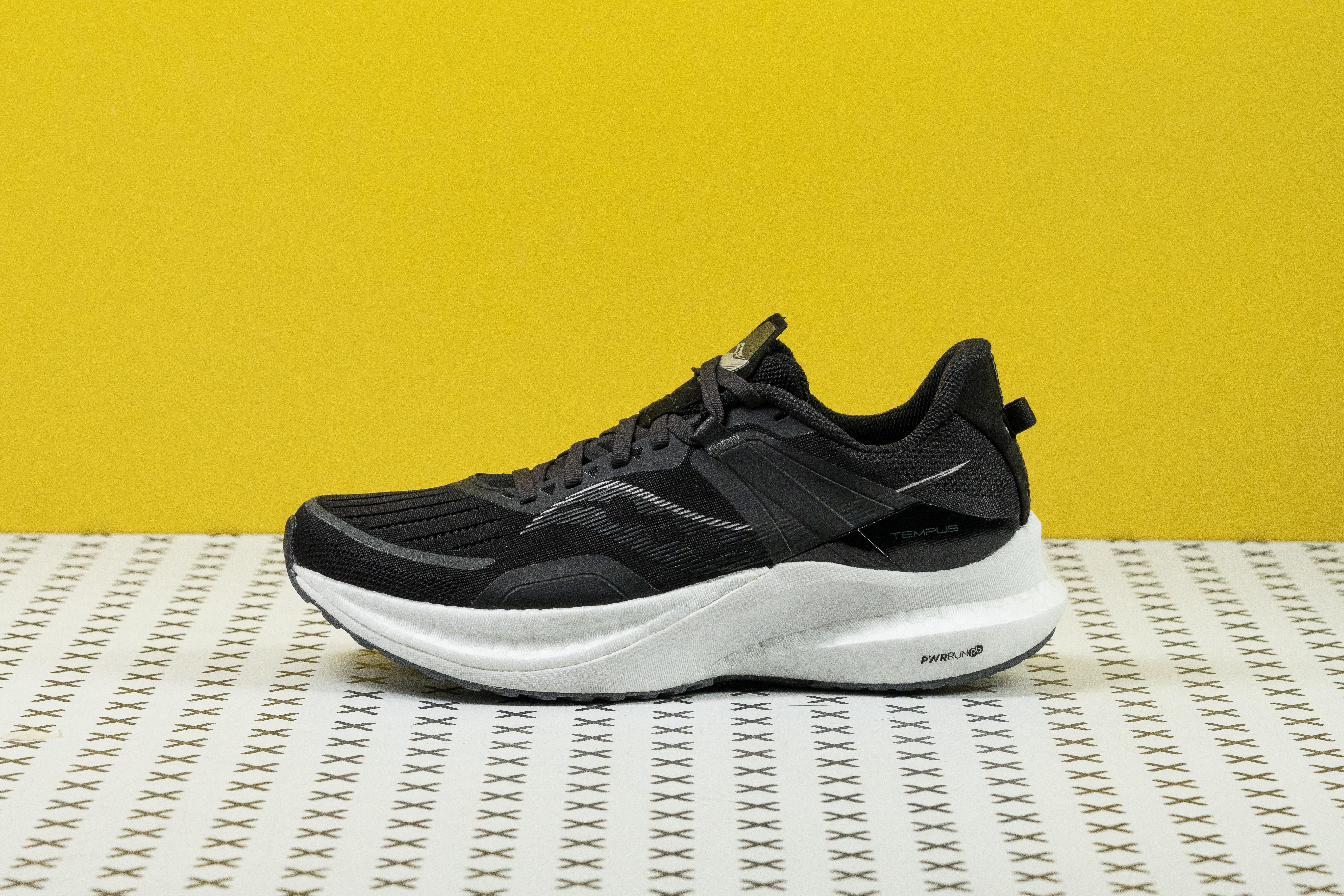
Reach great distances with the Tempus
The Tempus from Saucony has a generous amount of cushion and support that makes it an excellent pick for high-mileage efforts.
With a 33.9 mm heel cushioning, we measured the Saucony Tempus to be about the same as running shoes on average. Given how much taller running shoes become with each year, what used to be max-cushioned is now the new average.
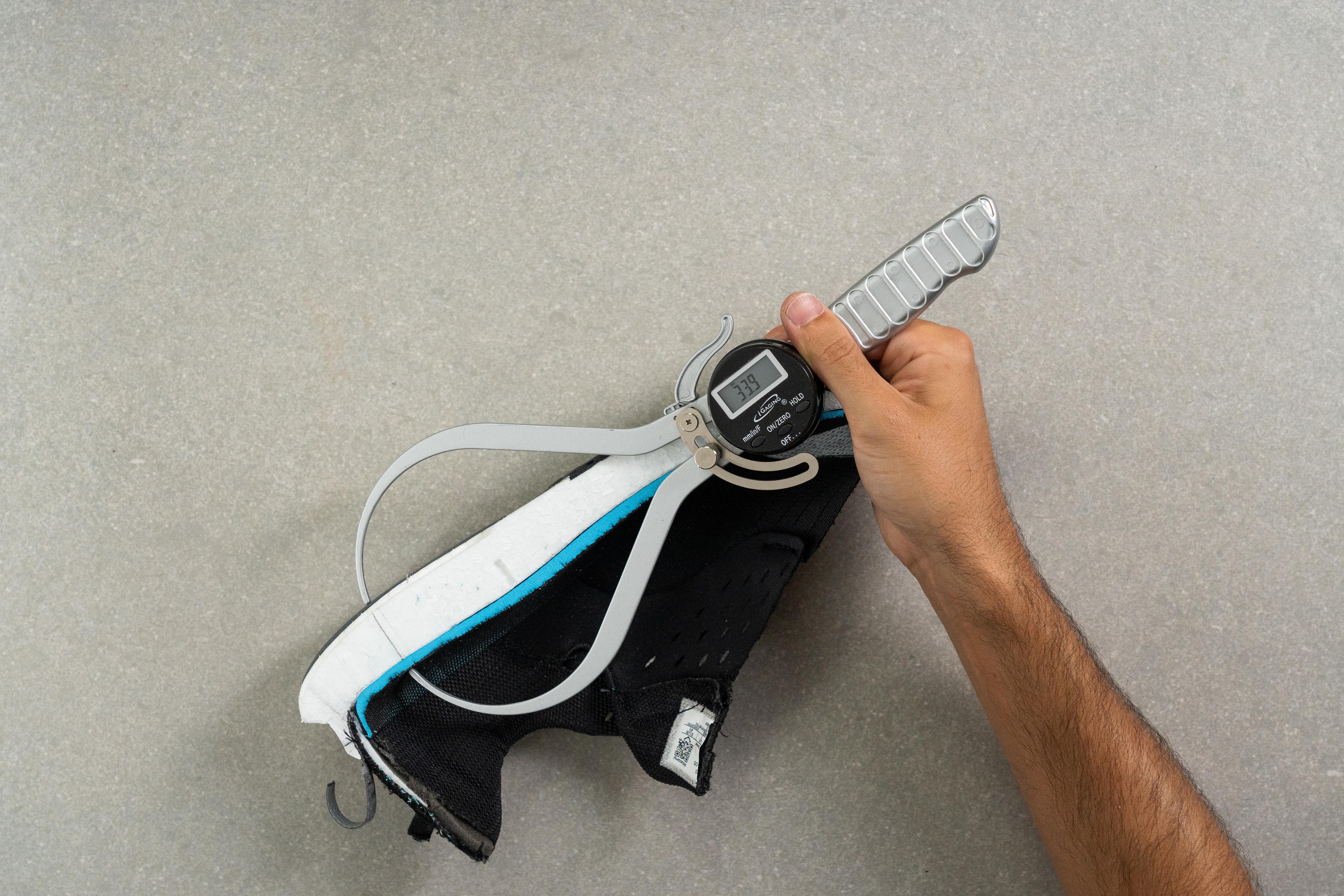
We believe that the Tempus can make a perfect go-to shoe for long runs, especially on days when your legs are more tired than normal and need extra support.
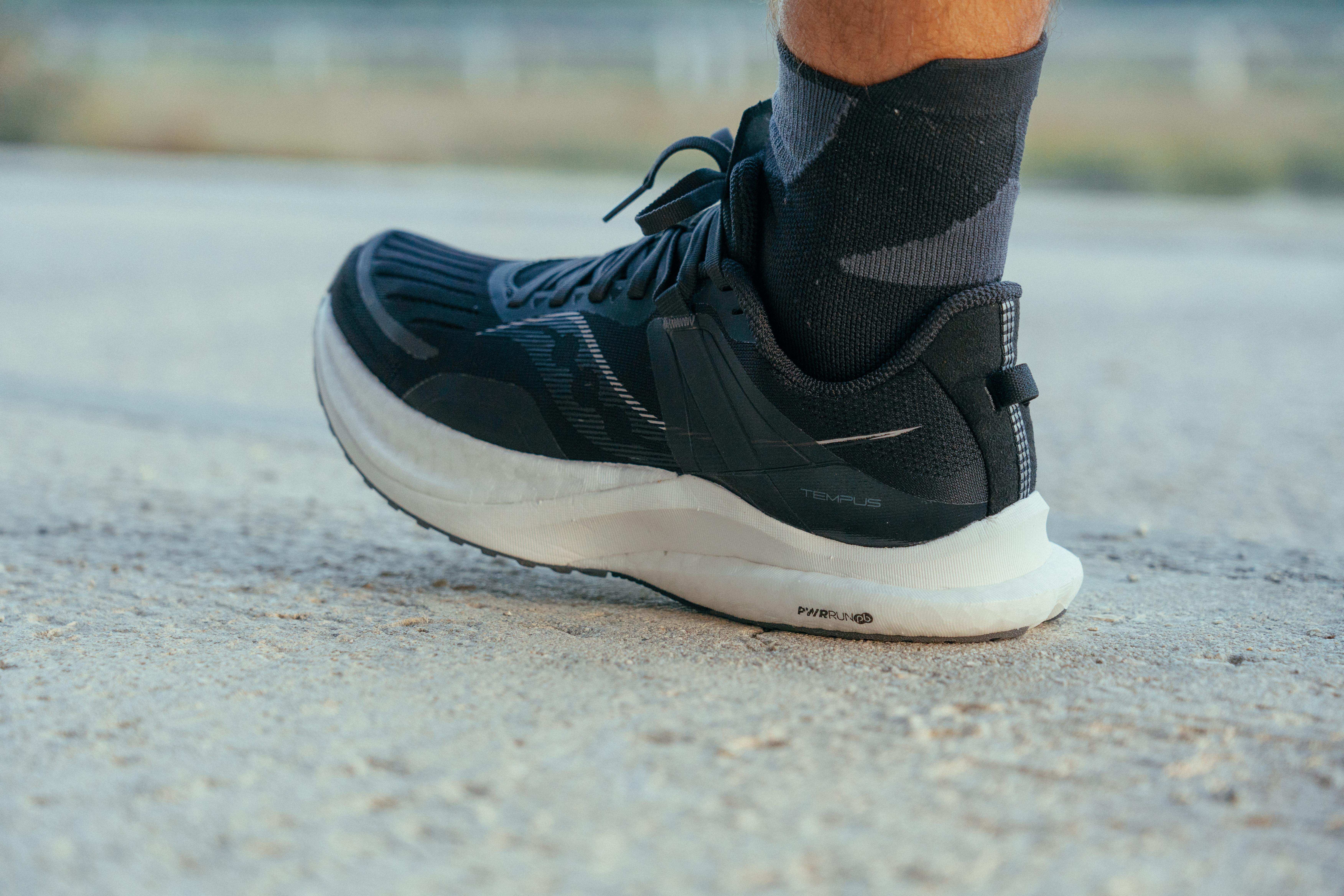
Tempus also turns out to be surprisingly plush for a stability shoe! With a durometer measurement of 18.4 HA, we found this Saucony shoe to be 30% plusher than average!
A bit of reflectivity in the back
The vertical stripes on the heel counters are made of reflective material to keep you visible in low-light conditions.
Looks bulky but doesn't run like it
At 252 grams/8.9 ounces in US men's 9, the Saucony Tempus redefines stability shoes in terms of weight. For a 34 mm heel stack, that's impressive!
On average, support running shoes weigh in at 10.5 ounces (298g).
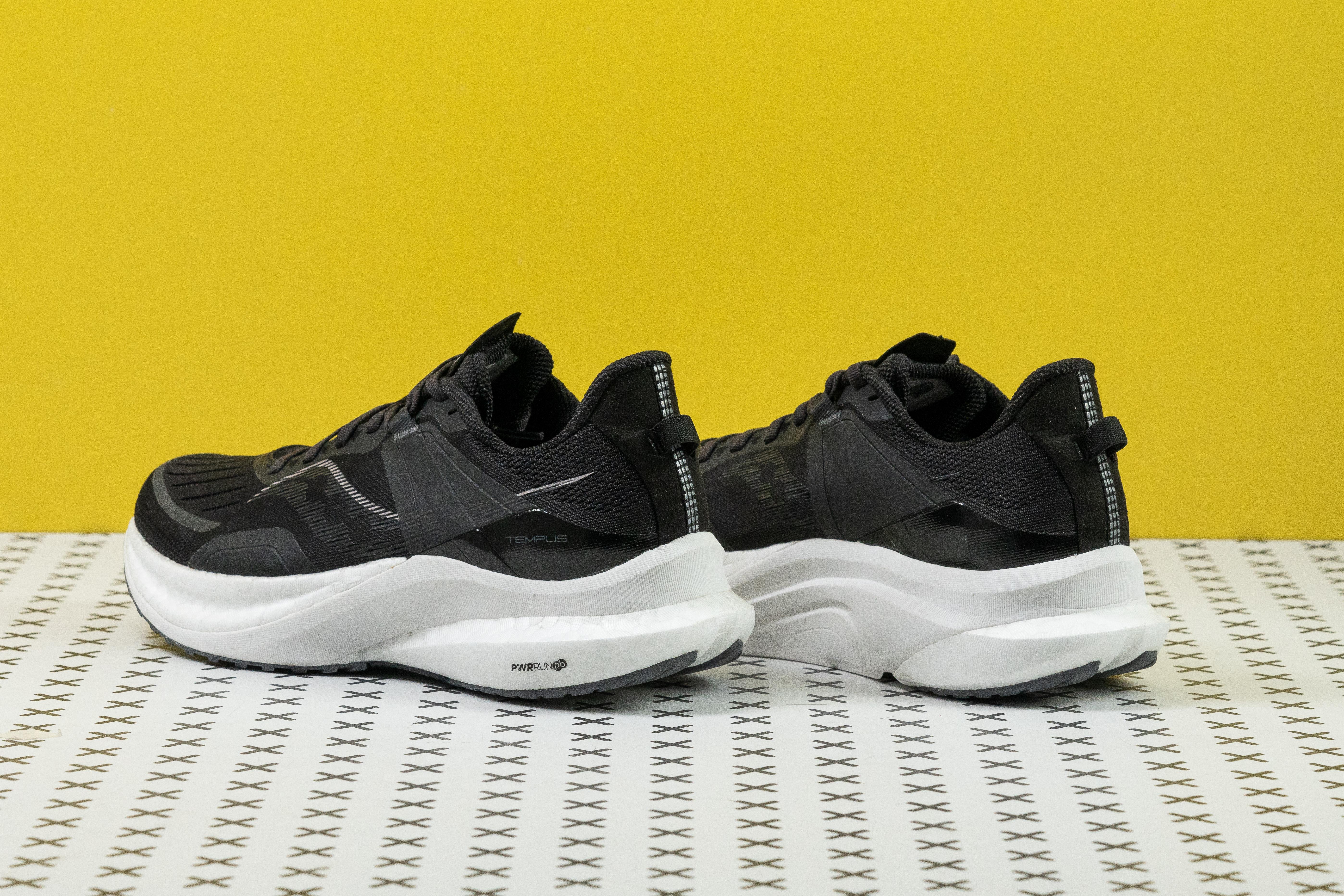
Fit is ooh-la-la
When it comes to the in-shoe comfort, it feels nothing less than a huge bear hug! The Tempus is snug in all the right places and has a little extra room where you need it.
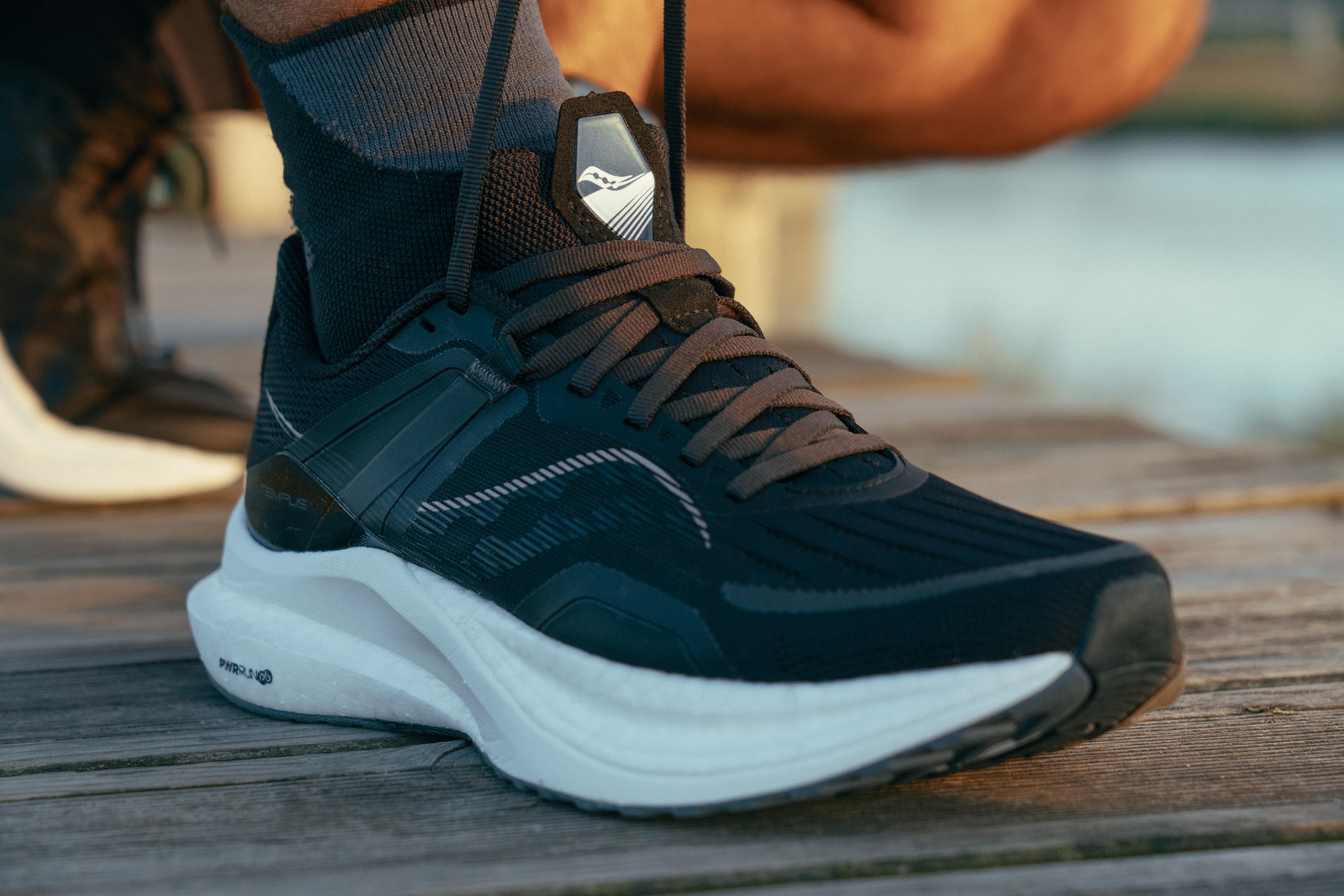
A secure fit is also provided by a semi-gusseted tongue (attached to the sides), the overlays, and the shoe's secure lacing system.
A space to splay
Given the shoe's average forefoot width of 97.4 mm, it's wide enough to be comfortable for medium-width feet. However, because the toebox becomes tapered around the toes, it may feel restricting to wide footers.
Luckily, the Saucony Tempus is available in a wide option too!
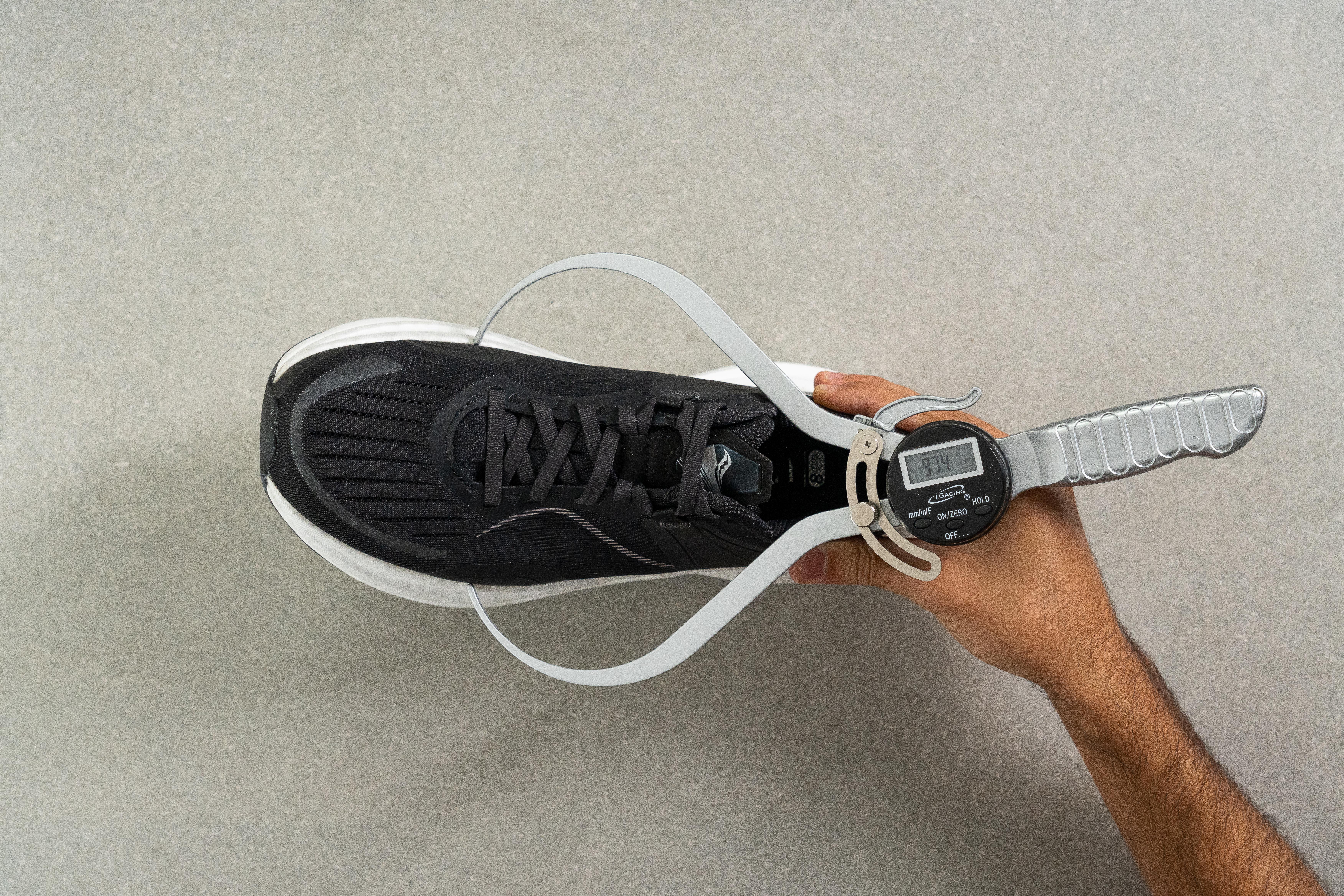
A heel counter that skimps on padding
This is what ruins the otherwise oh-so-good feel of the Tempus. The lack of padding causes abrasion on the skin, and although the upper has a more precise fit than most shoes, this could potentially cause heel slips.
If your ankles are sensitive to the heel counter, we recommend being cautious and stocking up on bandaids.
Outsole crushes it in the durability department
After logging about 30 miles in the Saucony Tempus, we can confirm that the Saucony Tempus is built like a tank, especially in the outsole. Because of that, we actually anticipate the shoe to last beyond 500 miles.
The Tempus has a solid 3-mm thick rubber outsole. So, this Saucony shoe has a great deal of material to wear through.
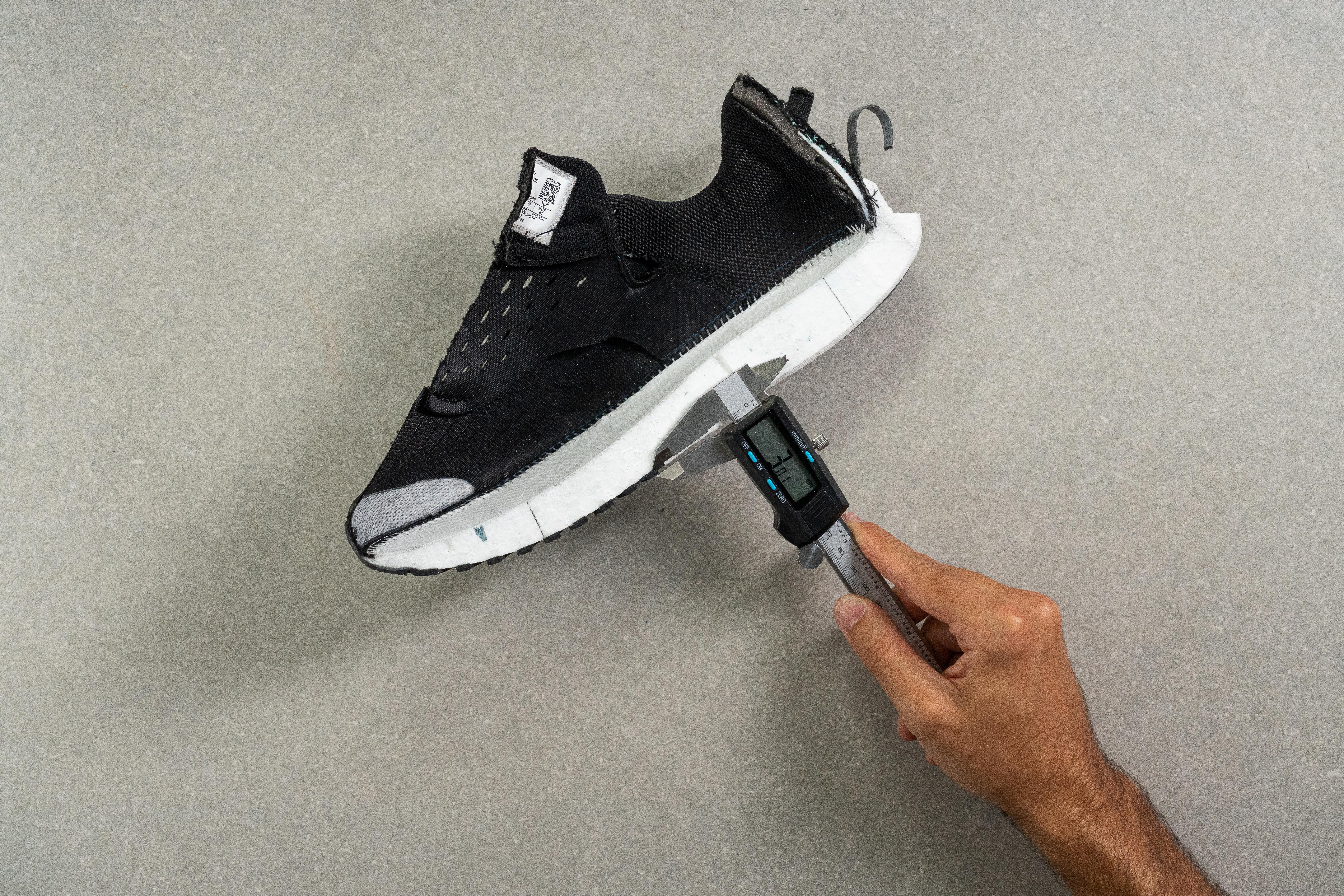
Not to mention that the rubber is also much harder than average! With a durometer measurement of 89.5 HC, we found it to be 12% harder than average and also one of the hardest in our catalog!
Grip that doesn't disappoint
We felt amazingly surefooted running in the Tempus. No worries about slipping or sliding. The shoe gripped very well, even after a downpour!
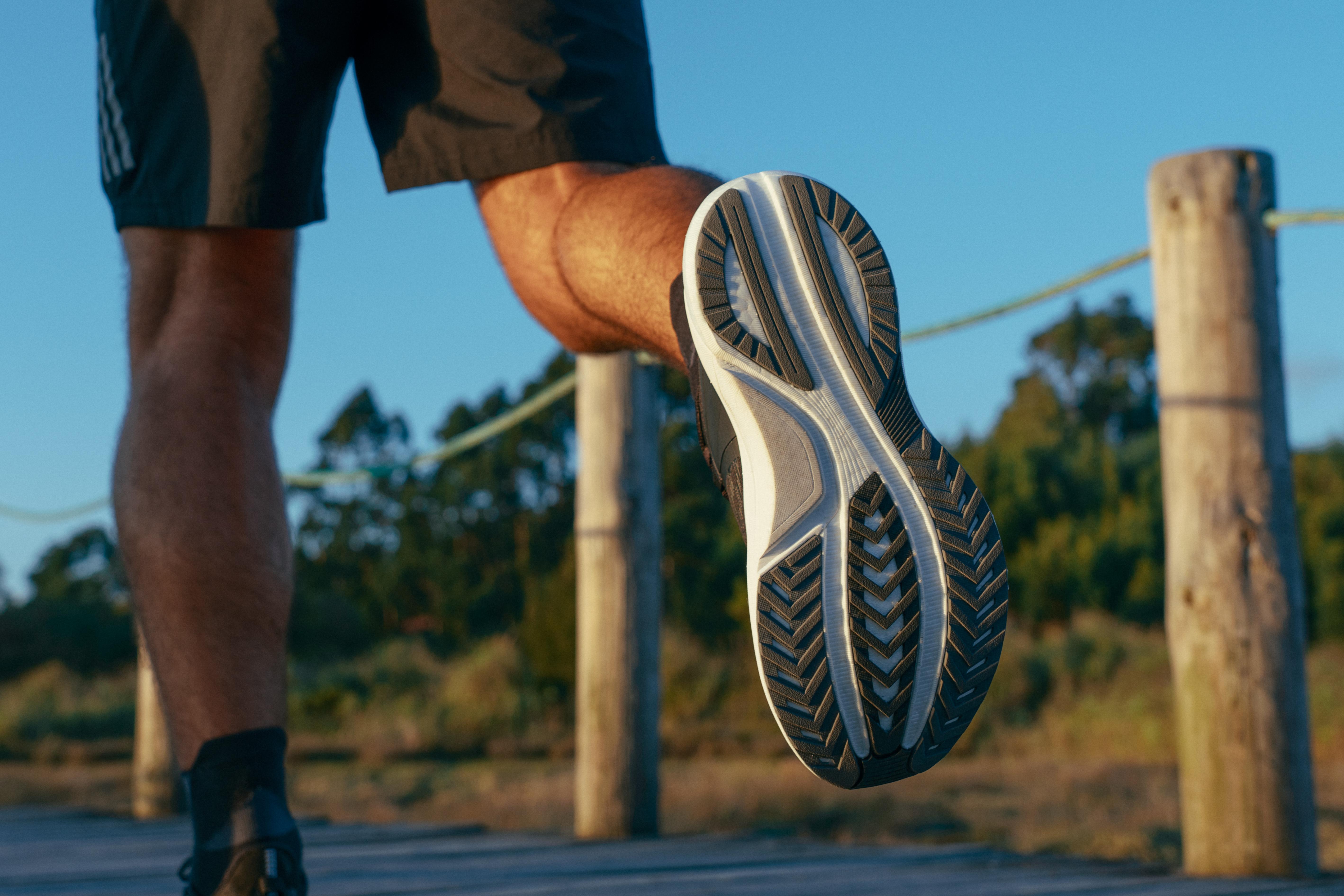
It's gonna dig into your wallet
At its full price of $160, the Saucony Tempus can be a little bit of a splurge.
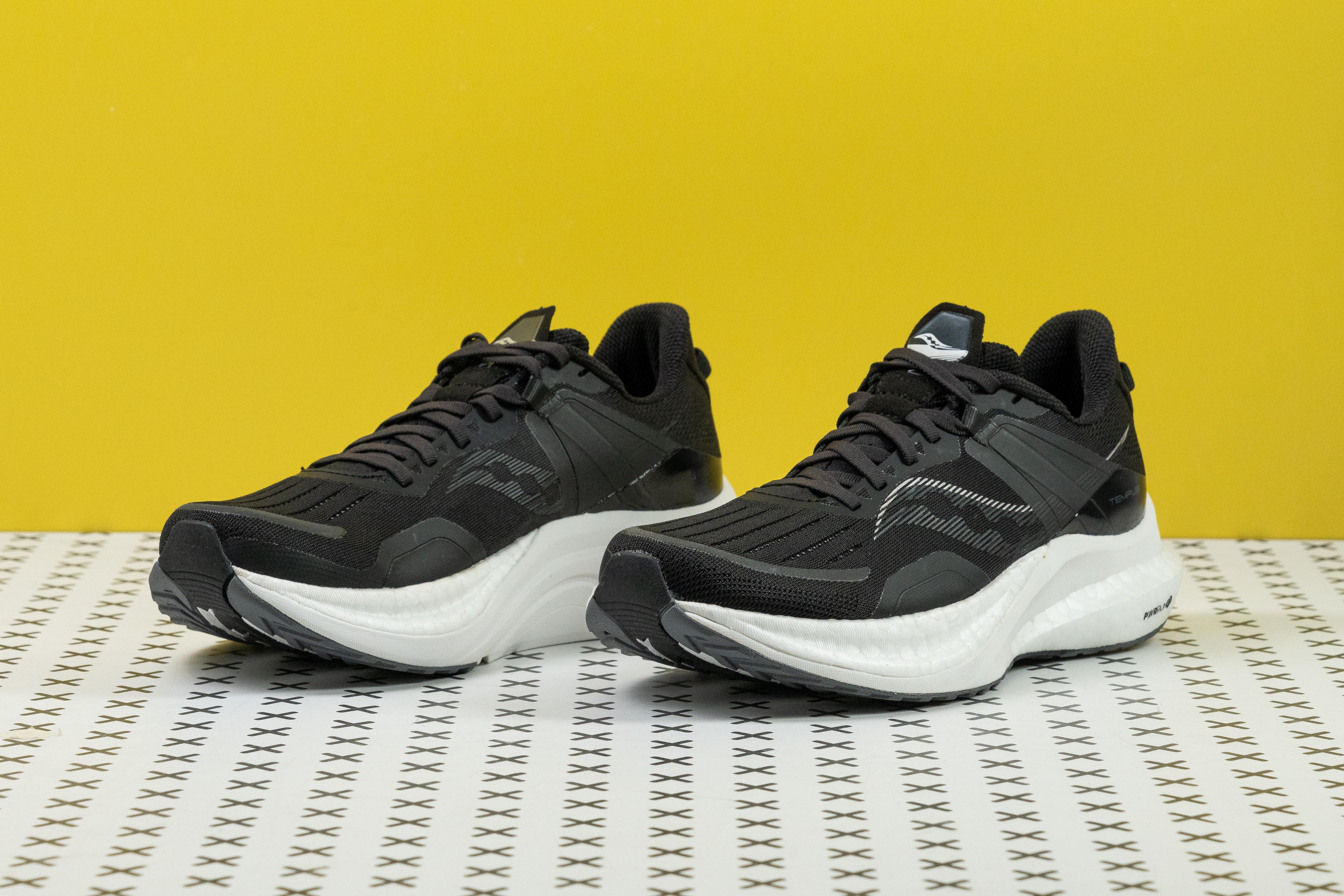
And just to give you a little bit of a reference, the average daily trainer only costs $119 a pair while the average stability shoe costs $135 a pair.
